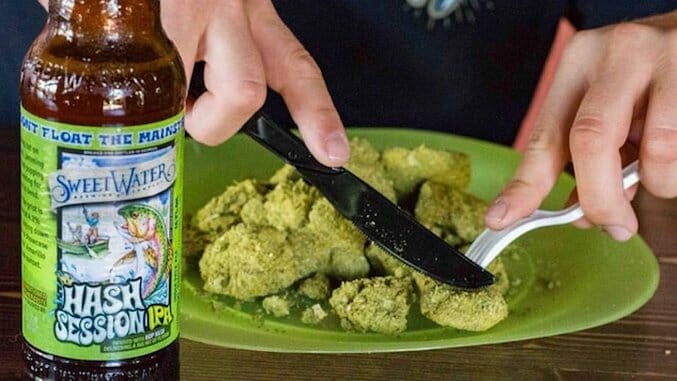Sweetwater Talks Hop Hash and IPA Trends
Photo via Sweetwater Brewing
The makers of 420 Extra Pale Ale know hops and they knew an obvious marketing opportunity when they saw it.
“Hash is a gimme,” says head brewer Nick Nock, the man behind the Atlanta brewery’s “hop hash” beers. Hop hash, as it’s been called, is a byproduct of the pelletizing process, something Nock first put to the test in Johnny Hash, a one-off in the Dank Tank Series, then later with seasonals Hop Hash DIPA and this fall’s Hash Brown ale. They’ve now added a year round Hash Session IPA into the mix as well. Nock notes the chewy character the hash gives to the beer, along with an aromatic punch that leads the way.
In an industry that’s gone hop mad, SweetWater’s hash innovation shows that there are still new ideas and products, even when it’s been right under brewers’ noses for the entire time. We talked with Nock about hash and more.
Paste: How did the hop hash get started?
Nick Nock: I was talking to one of the big wigs at Hopunion (which is now Yakima Chief) and he was telling me how hops go through a pelletizer and, every 20 minutes or so, they have to clean the pelletizer of all the sticky, resin-y stuff that’s left behind. Ultimately they would scrape it off and toss it just to keep the process going. He called it hash and it was, “wait a second: We have a beer 420. Why don’t you send me some?”
-

-

-

-

-

-

-

-

-

-

-

-

-

-

-

-

-

-

-

-

-

-

-

-

-

-

-

-

-

-

-

-

-

-

-

-

-

-

-

-








































